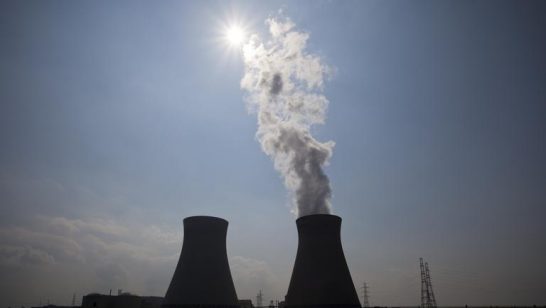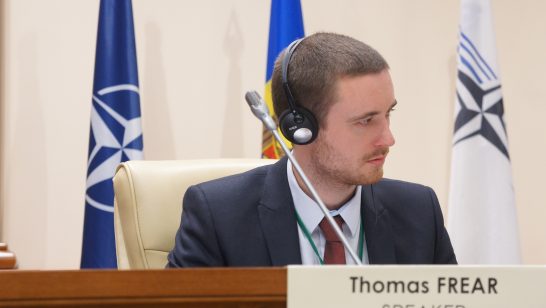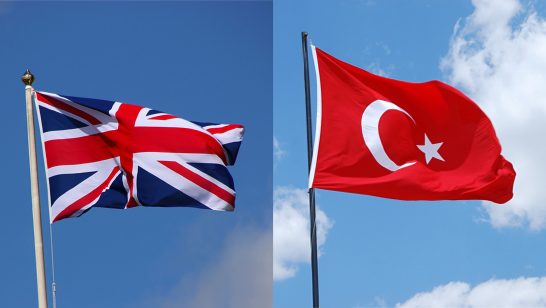
Many NATO members have observed recent developments in Turkey’s foreign policy with great concern. Growing tension between Turkey and its allies, particularly with the United States, is cited as the main reason for such concern. Turkey’s enhanced contacts with Russia and its move to procure the S-400 missile defence system also acted to erode trust and confidence regarding Turkey’s reliability and predictability as a NATO ally. Is Turkey, once considered a staunch supporter of the Trans-Atlantic security community, drifting apart?
One of the primary reasons why Turkey is increasingly being perceived as a liability rather than an asset is due to the increasingly politicized nature of Turkey’s foreign policy making. As a result, foreign policy issues began to be instrumentalised for domestic political purposes, whilst multilateral formats have been used as a leverage to solve bilateral problems. For example, as Turkey’s relations with Israel deteriorated, Turkey resorted to hindering Israel’s participation in NATO fora, primarily the Mediterranean Dialogue. Instead of empathy, such an attitude provoked frustration among NATO allies for it affected the partnership and cooperation programmes of the Alliance as a whole.
Secondly, Turkey’s cooperation with Russia and its decision to buy S-400s from Russia lead to serious confusion among NATO allies. The S-400s will not be inter-operable with allied defence mechanisms and therefore will not be integrated into the existing defence system of which Turkey and other NATO countries are a part. Furthermore, buying S-400s from Russia will result in a duality in Turkey’s defence, which primarily used western equipment, and will complicate the integrity of existing NATO systems shared for Turkey’s defence. Such a duality, in the final analysis, may well end up weakening Turkey’s defence instead of enhancing it.
Turkey has been suffering from the effects of terrorism for more than three decades. Turkey’s border security has been seriously weakened due to the developments in Syria and Iraq. The rapid transformation of civilian unrest in Syria, first into a fertile environment for the settlement of radical terrorist groups and then into a devastating civil war, exacerbated the challenges to Turkey’s security. Turkey’s border with Syria has been exposed to infiltration by terrorist elements in both directions, affecting not only Turkey but also Europe’s stability and security.
The growing chaos also exacerbated differences of opinion between Turkey and its allies about the roots of the Syrian problem. Turkey argued that an immediate toppling of the regime in Syria should be the priority, whereas the international community focused on combating Islamic State in Iraq and Levant (ISIL).
Turkey and the United States had difficulty in identifying the parameters of a common platform in the fight against ISIL terrorism in Syria. Turkey supported the Free Syrian Army (FSA), a faction of the Syrian opposition, and argued that this formation could be militarily efficient both against ISIL and against the Syrian government forces. The United States, however, prioritised the fight against ISIL and tacitly agreed that Russia and the Syrian government could also play a role in this task.
The joint Turkey-US “train and equip programme” failed to reassure Washington that the FSA could contribute effectively to this coalition. The US preference to rely on the Syrian Democratic Forces (SDF), which also included Syrian Kurdish formations, namely PYD and YPG, resulted in a more acute disagreement between Turkey and the US, as the former perceived those Kurdish groups to be an extension of the PKK terrorist organisation.
Turkey’s closer coordination with Russia can best be defined as an attempt to facilitate the peace talks in Geneva in order to find a solution to the Syrian problem. As Turkey failed to identify a common platform, particularly with the US in Syria, its consultations with Russia increased.
At the beginning of 2017, these efforts enabled Turkey and Russia to sponsor direct talks between the representatives of the Syrian opposition and those of the Syrian government in Astana, Kazakhstan. Several rounds of talks in Astana, succeeded by follow-up meetings in Sochi, Russia, helped to establish a dialogue between the main local actors of the Syrian civil war. Turkey and Russia, with the participation of Iran, agreed to the establishment of four de-escalation zones in Syria which were envisaged to facilitate the cessation of hostilities if not the ceasefire directly. Turkey and Russia have also agreed to co-monitor the de-escalation zone in Idlib, in the northwest of Syria.
Today, Turkey’s military operation in the Afrin region of Syria aims at the eradication of PYD/YPG elements from Turkey’s border area and intends to facilitate the return of a part of the 3.5 million strong contingent of Syrian refugees resident in Turkey to those liberated areas. Turkey’s declaration that military operations may be expanded further to the east, where American troops are deployed, causes the serious concern among NATO allies that a confrontation between the two major allies may occur and endanger the solidarity of the Alliance.
The recent emphasis in Turkey’s foreign policy on the Middle East and North Africa is hard to overlook. Turkey’s self-defined security concerns and its rapprochement with Russia are also seen as a justification of an increased focus on this area. This trend, however, does not mean that Turkey will end up deviating from its current security preferences. Turkey’s membership of NATO is a corollary to the enhancement of its national security, complementing its national defense strategy. Turkey’s contribution to Euro-Atlantic defense and security cannot be underestimated. Therefore, it is necessary to reaffirm the terms of this mutually reinforcing allied relationship.
NATO Secretary General and the North Atlantic Council have repeatedly confirmed that they understand Turkey’s security concerns and support its fight against terrorism. On the other hand, Turkey’s willingness to finalise the S-400 deal with Russia still raises question marks. Turkey’s agreement to take part in the French-Italian consortium for the EUROSAM project, for the time being, remains as a reassurance that Turkey’s security strategy will continue to be in compliance with its commitments to the NATO Alliance. Both sides, however, have to be careful to not endanger the solidarity of the Trans-Atlantic alliance and have to strengthen their coordination. Failure to do so will only benefit NATO’s enemies and make the long-standing collective defence of its members vulnerable.
The opinions articulated above represent the views of the author(s), and do not necessarily reflect the position of the European Leadership Network or any of its members. The ELN’s aim is to encourage debates that will help develop Europe’s capacity to address pressing foreign, defence, and security challenges.



